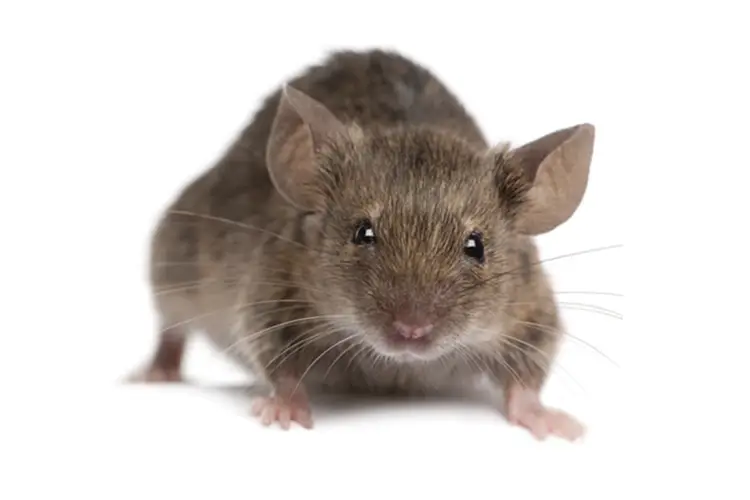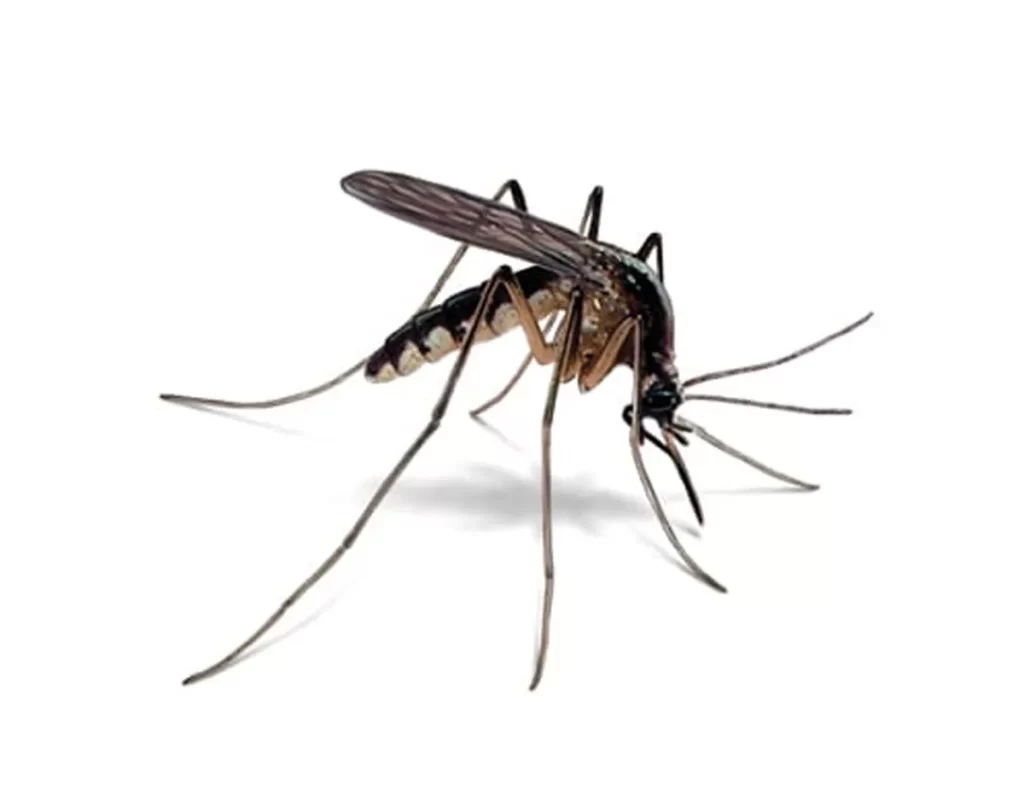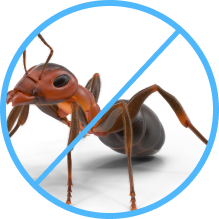Common Ants
Are you having Common Ants problems?
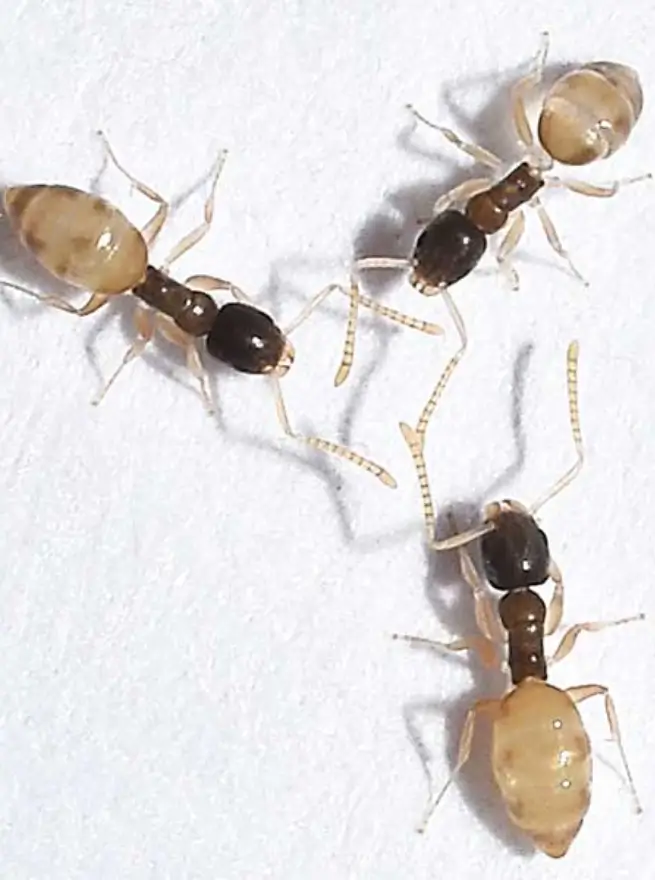
Ghost Ants
Identification
Ghost ants are very small, measuring about 1.3mm to 1.5mm in length. They have a pale, almost translucent body with a dark brown head and thorax. Their legs and antennae are also pale, making them hard to see against light coloured surface.
Habitat
Ghost ants prefer warm, humid environments. They are commonly found in tropical and subtropical regions but can infest homes anywhere if conditions are favourable. Ghost ants nest in wall voids, behind baseboards, inside cabinets and under floors. They are attracted to areas with moisture such as kitchens, bathrooms and laundry rooms.
Behaviour
Ghost ants are omnivorous and prefer sweet foods. They forage in long trails and can quickly establish satellite colonies, making control challenging
Reproduction
Ghost ants colonies can vary in different size and can accommodate populations ranging from hundreds to thousands. Ghost ants colonies often have multiple queens, and workers move freely between their nests.
Black Ants
Identification
Black ants vary in size depending on the species. The black garden ant workers are typically 3 to 5mm long, with a dark brown to black body. The queen is larger, measuring up to 15mm in length.
Habitat
Black ants prefer outdoor environment but can enter homes in search of food and water. Black ants often found in kitchens and bathrooms where food and moisture are available. In outdoor, they build nests in soil, under rocks and in decaying wood.
Behaviour
Black ants are social insects that live in large colonies. They are known for their strong foraging and create visible trails to food sources. They are omnivorous, feeding on sweets, proteins and fats.
Reproduction
Female queen can lay up to 200 eggs per day. The eggs hatch into larvae after 2-4 weeks. The larvae are fed by workers and develop through several instar over 2-4 weeks. The larvae spin cocoons and pupate for 2-4 weeks. The pupae emerge as adult workers which are sterile and cannot reproduce. The colony grows as more eggs are laid and more workers emerge.
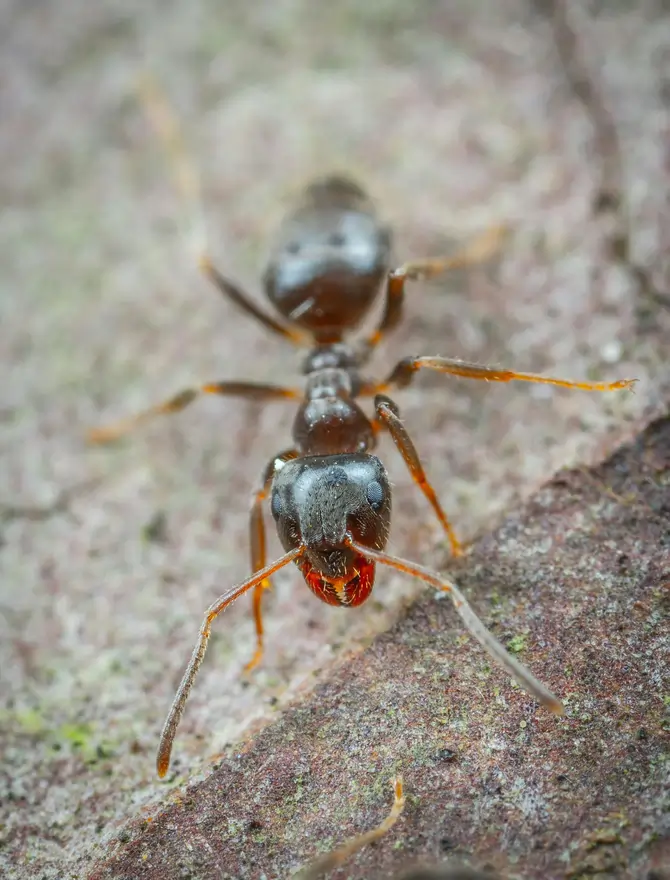
Pharaoh Ants

Identification
Pharaoh Ants are tiny, measuring about 1.5mm to 2mm in length. They have a yellow to light brown body with a darker abdomen. Their antennae have 12 segments with a three-segmented club.
Habitat
Pharaoh ants prefer warm, humid environment and are commonly found indoors. They nest in wall voids, baseboards, in electrical outlets and inside appliances. They are attracted to areas near food and water sources such as kitchen, bathrooms and pantries.
Behaviour
Pharaoh ants are omnivorous and forage for a variety of foods including sweets, proteins and fats. They form well-defined trails and can travel long distances from their nests to food sources.
Reproduction
Female brown banded cockroaches produce egg cases (oothecae) containing 14 to 18 eggs. They can produce up to 20 oothecae in their lifetime. The eggs hatch in about 50 to 75 days and nymphs take about 3 to 9 months to mature into adults.
What are Common Ants?
Common ants are among the most prevalent pests that invade homes, gardens and commercial spaces. While most common ants are not harmful, their presence can be a nuisance and in some cases a health concern. Common ants like ghost ants, pharoah ants and black ants are commonly found in Singapore.
Risks of living with Common Ants
Most common ants do not pose significant health risks, but they can contaminate food and surfaces, leading to hygiene issues.
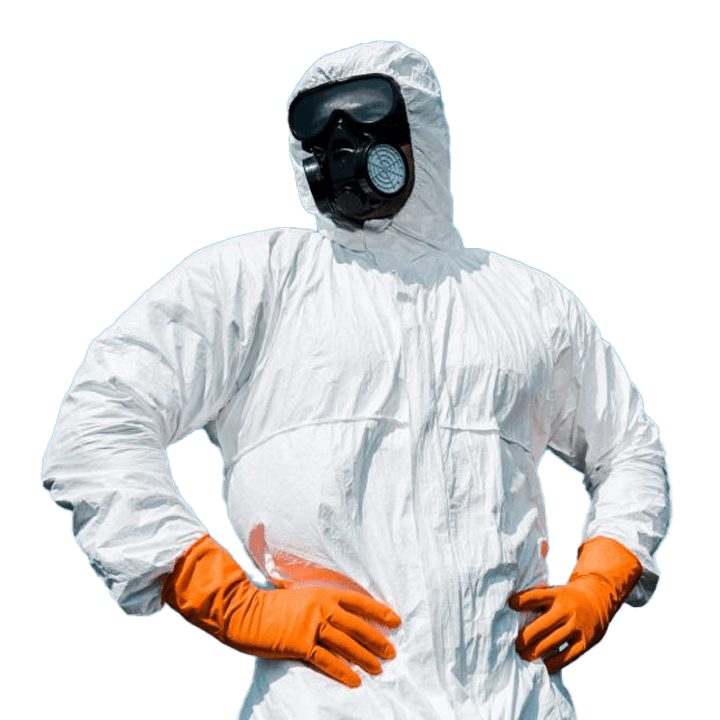
Signs of a Common Ants infestation
Visible Ants Trails
Seeing lines of ants moving along countertops, walls, or floor indicates an infestation
Nesting sites
Discovering ant nests in garden, soil or indoor areas like wall voids and behind baseboards.
Foraging activity
Ants actively searching for food in kitchens, pantries and other food source areas
Effective prevention against Common Ants
Maintain Cleanliness
- Keep kitchen surfaces, floors and food storage areas clean and free of crumbs and spills.
- Store food in airtight containers to prevent ants from accessing it.
- Regularly take out the trash and keep garbage bins clean and sealed.
Eliminate Moisture
- Fix any leaks in plumbing, roofs and walls to reduce moisture levels in your home.
- Ensure proper ventilation in bathrooms, kitchens and laundry rooms.
Seal Entry Points
- Inspect and seal cracks, gaps and holes in walls, foundations and around windows to doors to prevent ants from entering.
- Install door sweeps and weather stripping to black ants entry.
Outdoor Maintenance
- Keep vegetation and soil away from your foundation of your home.
- Trim tree branches and shrubs that touch the exterior of your house.
- Regularly inspect and treat outdoor nests to prevent ants from moving indoors.
Professional Pest Control
- For severe or persistent infestations, seek the help of a professional pest control service. We can provide a comprehensive treatment plans tailored to your specific situation.
Conclusion
Common Ants are persistent pests that require diligent prevention and Control Measures. Common ants may be small, but they can cause significant problems in your Home And Kitchen. By understanding their behaviour and implementing effective strategies, you can Protect Your Home or business from infestations.

